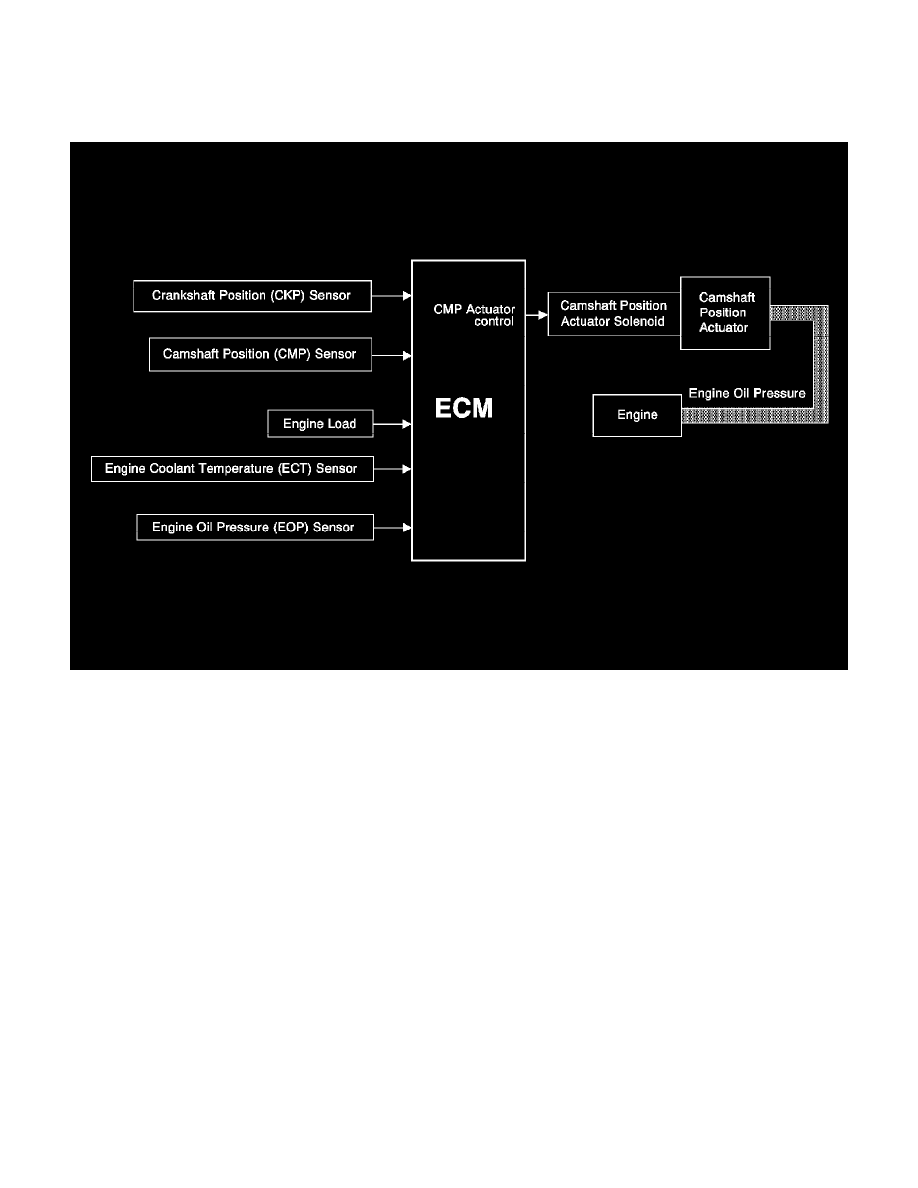Silverado 1500 2WD V8-6.0L (2010)

Variable Valve Timing Actuator: Description and Operation
Camshaft Actuator System Description
Camshaft Position (CMP) Actuator System
The camshaft position (CMP) actuator system is used for a variety of engine performance enhancements. These enhancements include lower emission
output through exhaust gas recirculation (EGR) control, a wider engine torque range, improved gas mileage, and improved engine idle stability. The
CMP actuator system accomplishes this by controlling the amount of intake and exhaust valve overlap. For the 6.0 liter (LY6, L76) and the 6.2 liter
(L92) engine, the Park position for the CMP actuator and camshaft is 8.5 degrees before top dead center (BTDC) or 17 crankshaft degrees BTDC. The
engine control module (ECM) can only command the CMP actuator to retard the valve timing from the Park position or advance the valve timing back to
the Park position. The total range of valve timing authority is 31 degrees camshaft rotation, or 62 degrees of crankshaft rotation. The control range is
from the Park position of 8.5 degrees camshaft or 17 degrees crankshaft BTDC, to 22.5 degrees camshaft or 45 degrees crankshaft after top dead center
(ATDC).
CMP Actuator System Operation
The camshaft position (CMP) actuator system is controlled by the control module. The control module sends a pulse width modulated 12-volt signal to a
CMP actuator solenoid in order to control the amount of engine oil flow to a camshaft actuator passage. There are 2 different passages for oil to flow
through, a passage for cam advance and a passage for cam retard. The camshaft actuator is attached to the front of the camshaft and is hydraulically
operated in order to change the angle of the camshaft relative to crankshaft position (CKP). Incorrect engine oil pressure (EOP), viscosity, temperature,
engine oil level, or aftermarket engine oil additives can have an adverse affect on camshaft phaser performance.
CMP Actuator Solenoid Circuit Diagnostics
The engine control module (ECM) monitors the control circuit of the camshaft position (CMP) actuator solenoid for electrical faults. The control module
has the ability to determine if a control circuit is open, shorted high, or shorted low. If the control module detects a fault with the CMP actuator solenoid
control circuit, DTC P0010 will set.
CMP Actuator System Performance Diagnostic
The engine control module (ECM) monitors the performance of the camshaft position (CMP) actuator system by monitoring the calibrated desired
position and the actual position of the camshaft through the 4X signal of the CMP sensor. If the difference between the actual and desired position is
